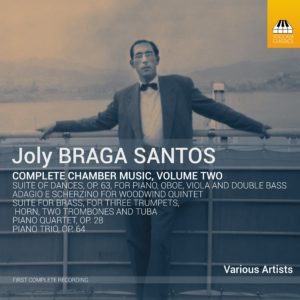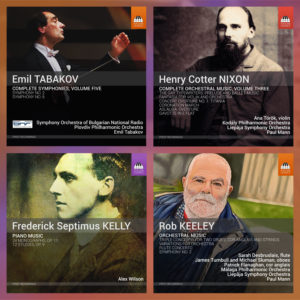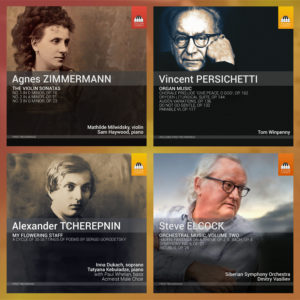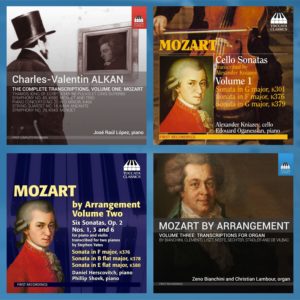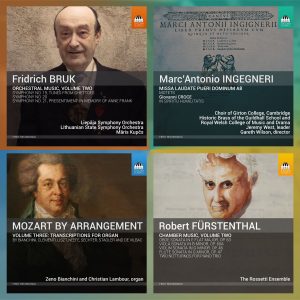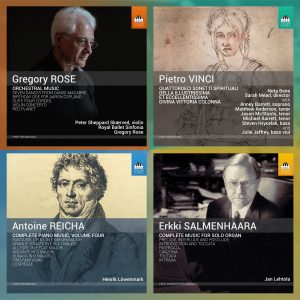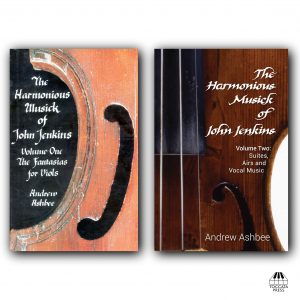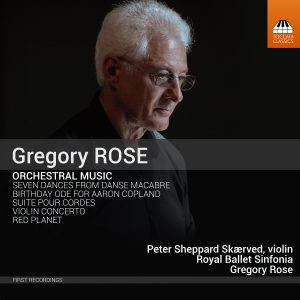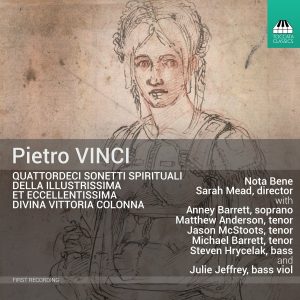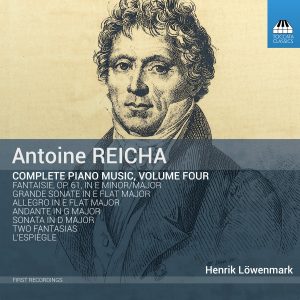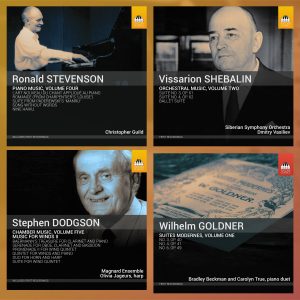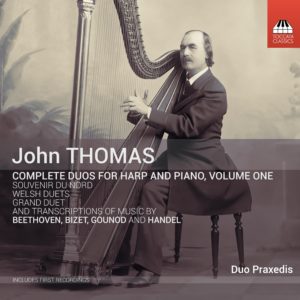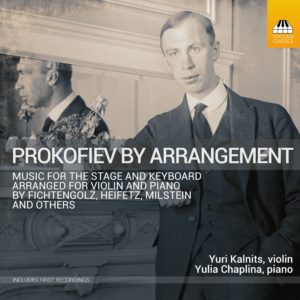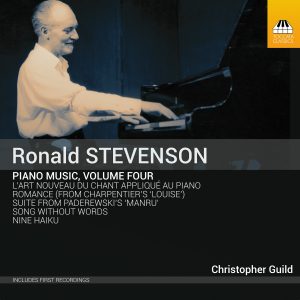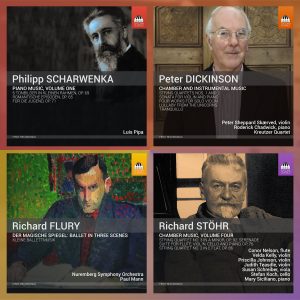Search Results for "Space Wolf: The First Omnibus mp3 torrent" – Page 53
Joly Braga Santos: Complete Chamber Music, Volume Two
Joly Braga Santos (1924–88) was one of the most important composers in twentieth- century Portugal. In his early works his fondness for modal harmony, absorbed from the Portuguese masters of the Renaissance, and his busy counterpoint combine to make him sound surprisingly close to such particularly English composers as Vaughan Williams and Moeran. Although his harmonic language became more astringent with time, it retained a burly sense of humour and a powerful charge of energy, often infused with the spirit of Portuguese folk-dance. The five works on this second volume cover three decades of composition, from the mid-1950s to the mid-1980s, and offer a wide array of instrumental combinations.
Jill Lawson, piano (Tracks 1–7)
Eliot Lawson, violin (Tracks 1, 5–7)
Natalia Tchitch,viola (Tracks 1–4)
Catherine Strynckx, cello (Tracks 1 , 5–7)
Adriano Aguiar, double bass (Tracks 2–4)
Ricardo Lopes, oboe (Tracks 2–4, 8–9)
Nuno Ivo Cruz, flute (Tracks 8–9)
António Saiote, clarinet (Tracks 8–9)
Carolino Carreira, bassoon (Tracks 8–9)
Paulo Guerreiro, horn (Tracks 8–12)
Jorge Almeida, trumpet (Tracks 10–12)
António Quítalo, trumpet (Tracks 10–12)
Pedro Monteiro, trumpet (Tracks 10–12)
Jarrett Butler, trombone (Tracks 10–12)
Vítor Faria, trombone (Tracks 10–12)
Ilídio Massacote, tuba (Tracks 10–12)
June 2020 Bundle
Included in this bundle:
May 2020 Bundle
Included in this bundle:
Mozart Bundle
Included in this bundle:
April 2020 Bundle
Included in this bundle:
March 2020 Bundle
Included in this bundle:
The Harmonious Music of John Jenkins Bundle
Purchase both hardback edition volumes of Andrew Ashbee’s The Harmonious Musick of John Jenkins and save!
Included in this bundle:
- The Harmonious Music of John Jenkins: Volume One, The Fantasias for Viols (Hardback)
- The Harmonious Music of John Jenkins: Volume Two, Suites, Airs and Vocal Music (Hardback)
John Jenkins (1592-1678) was both the most prolific and the most highly esteemed of English composers in the fifty or so years between the death of William Byrd and the rise of Henry Purcell. After his apprenticeship Jenkins became renowned as a skilled performer on the lute and viol, once playing to Charles I ‘as one that performed somewhat extraordinary’.
Gregory ROSE: Orchestral Music
The English composer and conductor Gregory Rose (b. 1948) here presents a programme of some of his recent orchestral compositions, prefaced by a 90th-birthday tribute to Aaron Copland. Many of these pieces show the influence of Stravinsky in their angular melodies, brittle harmony, hieratic gestures and fondness for dance. Rose’s Violin Concerto, a single span of nine interlocking episodes, has a similar sense of implicit drama: it casts the soloist as the central character whom the instruments of the orchestra engage in dialogue as the work progresses.
Peter Sheppard Skærved, violin (Tracks 7-17, 23)
Royal Ballet Sinfonia
Gregory Rose, conductor
Pietro VINCI: Quattordeci Sonetti Spirituali
The fourteen Sonetti Spirituali (1580) of the Sicilian-born Pietro Vinci (c. 1525–84) manifest an extraordinary blend of the secular and the religious in a narrative largely concerned with the birth, death and transfiguration of Christ. Setting Petrarchan texts by the aristocratic Vittoria Colonna (c. 1490–1547), a close friend of Michelangelo, in five parts, Vinci marries the stylised gestures of the Mannerist madrigal and the spiritual sincerity of the Latin motet, creating an unusually expressive hybrid that manages to be both texturally complex and emotionally direct.
Anney Barrett, soprano
Matthew Anderson, tenor
Jason McStoots, tenor
Michael Barrett, tenor
Steven Hrycelak, bass
Nota Bene
Joanna Blendulf, treble and bass viols
Wendy Gillespie, bass viol
Sarah Mead, alto and great bass viols
Emily Walhout, alto, bass and great bass viols with Julie Jeffrey, bass viol
Antoine REICHA: Complete Piano Music, Volume Four
The piano music of the Czech-born composer Antoine Reicha (1770–1836) – friend of Haydn and Beethoven, teacher of Berlioz, Liszt and Franck – has only recently begun to be discovered. He was an important influence on composers of the next generation but until the last few years his piano works remained almost completely unknown. Encompassing Baroque practices as well as looking forward to the twentieth century, they are full of harmonic and other surprises that show this liveliest of musical minds at work. In this fourth volume of his survey of Reicha’s piano music Henrik Löwenmark sandwiches a number of quixotic miniatures between two grand but idiosyncratic sonatas.
Henrik Löwenmark, piano
February 2020 Bundle
Included in this bundle:
John THOMAS: Complete Duos for Harp and Piano, Volume One
Harpist to Queen Victoria, the Welsh composer John Thomas (1826–1913) was also a prolific composer for his own instrument, writing works both for solo harp and for duos of two harps or harp and piano – a combination where the different sounds of the two instruments enhances the clarity of the texture. Thomas’ original works use the elegant Romantic style of his own day, but he often drew on Welsh folksong for his inspiration and also left a generous legacy of transcriptions, especially of operatic favourites
Duo Praxedis: Praxedis Hug-Rütti (harp); Praxedis Geneviève Hug (piano)
PROKOFIEV BY ARRANGEMENT
The 37 short pieces by Prokofiev transcribed for violin and piano brought together here ought really to come with a health warning. So distinctive are the contours, angles and extensions of the Prokofiev tune, drawn from an apparently inexhaustible hoard, that even a short exposure to the memory circuits of the mind can result in permanent occupation. This album is full of them, creating a panoramic tour around five decades of an exceptionally rich, diverse but ultimately sadly truncated life.
Yuri Kalnits, violin
Yulia Chaplina, piano
Ronald Stevenson: Piano Music, Volume Four
This fourth volume in Christopher Guild’s ongoing survey of the piano music of the pianist-composer Ronald Stevenson (1928–2015) – a major figure in the cultural life of twentieth- century Scotland – presents works inspired by the human voice, where Stevenson was concerned above all to make the piano sing, to allow it to express human feeling as naturally as possible. That concern can be heard both in his own pieces and his many transcriptions of music by other composers, which balance sophisticated craftsmanship and a refreshing emotional directness.
Christopher Guild, piano
January 2020 Bundle
Included in this bundle:
Music For My Love Bundle
CELEBRATING THE LIFE OF SOMEONE SPECIAL – 100+ NEW WORKS FOR STRING ORCHESTRA
When Yodit Tekle was diagnosed with stomach cancer in late 2014, her partner, Martin Anderson, who runs Toccata Classics, asked a few composer friends to write some music for strings to bring her comfort in her illness. As her life slipped away, he had the idea that she might be remembered in music and so he began to commission other pieces for string orchestra in her memory. To his surprise, almost everyone he asked generously agreed, and so the project snowballed: there are now over 100 composers who have written or agreed to write for it – in an undertaking that is probably unique in the history of music.
(Learn more at musicformylove.org)
Included in this bundle:
Stay In the Know
JOIN THE TOCCATA NEWSLETTER
"*" indicates required fields
By visiting our site, you agree to our privacy policy regarding cookies, tracking statistics, etc.
